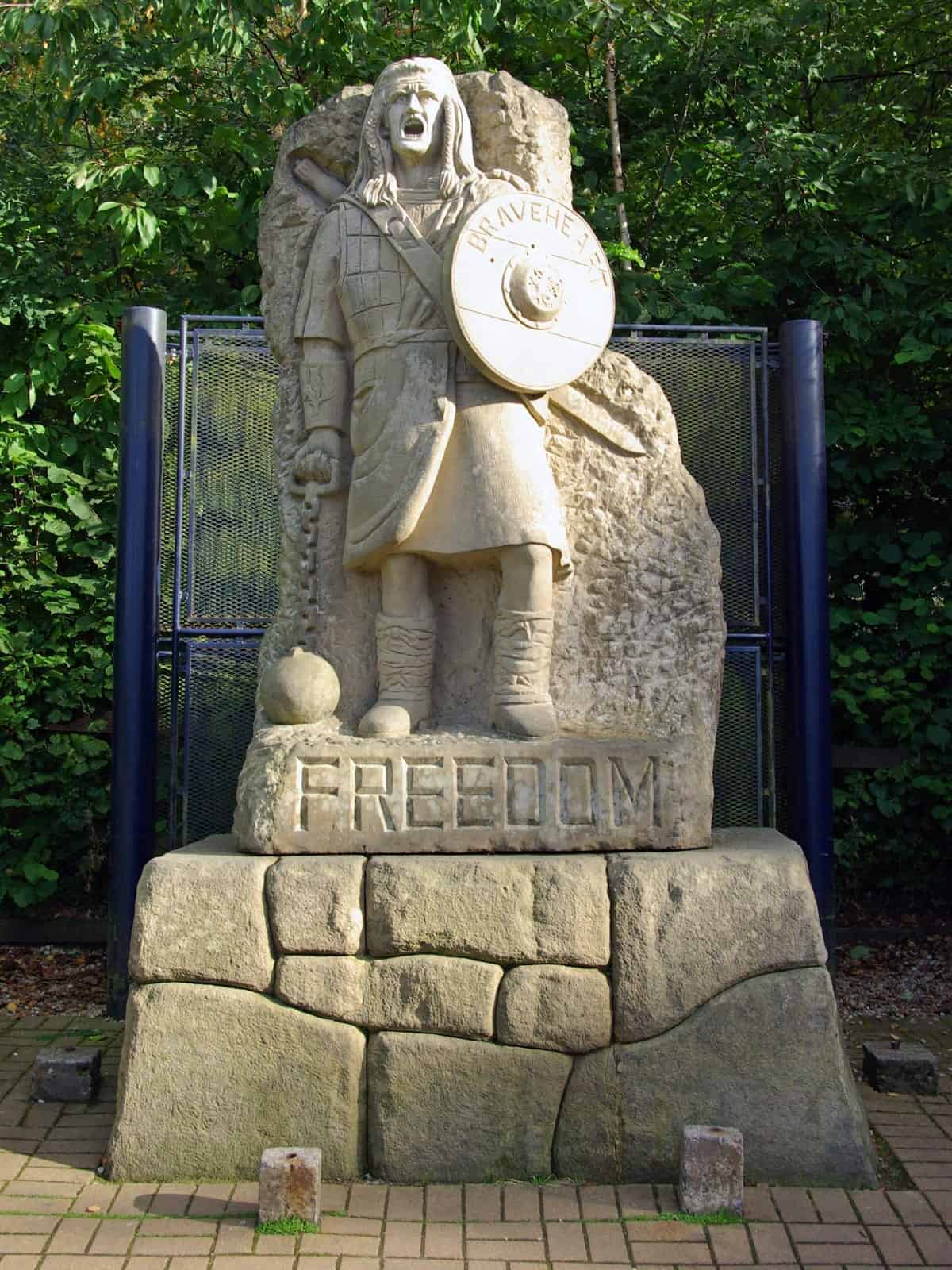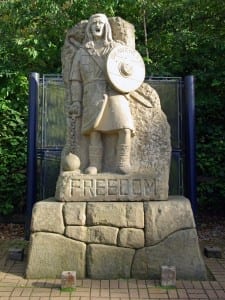
Participants: Michelle Jones and Derek Cameron
[poll id=”15″]
PRO
Derek Cameron – Contributor
The Scottish referendum has been held and by now you all know (or should at least) that the majority voted to keep Scotland and England bound together. I have to admit I am very disappointed. It’s not that I would like to see the two separated, I’m just dying for a successful independence movement. Plus, I’m incensed at the way the English government handled the issue.
For once, we could discuss people achieving independence peacefully. Lately, independence has been rearing its head in the ugliest of ways, and it was refreshing to have at least one place that was trying to achieve it peacefully. How does the English government react? It starts to peddle promises for greater independence as part of the UK while making true independence seem absolutely ridiculous. Obviously, the English were not concerned about the feasibility of anything; they were concerned with making false statements about how they would act after the split. They made claims that would result in harm to them just to try to convince Scottish citizens that they should vote against separation. It’s this fact that really has me furious.
At every turn, England began to bring up pitfalls of independence, and most of them were outright government fabrications. A key point brought up was currency. “Well what are you going to use for currency when you separate?” the English said. Naturally, having already researched the economic impacts, the Scottish replied, “Keeping the Pound as our currency would be beneficial for both countries after independence.” At this point, the British fabricated a roadblock saying that they would not allow it. Presumably, they were hoping to sway the public by destroying the confidence of the Scottish as to their ability to separate. Not allow the Scottish to use the Pound? Preposterous! If Scotland separated, they would have to bind their countries together in currency if they hoped to survive the split with the least negative effects on both countries. Not to say that the blame is all on England. If the Scottish public wanted to, they could see straight through the absurd statements made by the British government. Scotland was politically frustrated enough with the right-winged policies of the English government to force a referendum but was not politically involved enough to question the outrageous claims made by a government that has never been in their favour. At least have the brains not to accept everything you hear from a party that will get massive benefit if you choose to keep the status quo.
[pullquote]“As much as I blame the English government for their disinformation, I also blame the Scottish for their apathy.”[/pullquote]
I’m exasperated that the Scottish did not have the fortitude to carry through with the momentous changes the separation would entail. As much as I blame the English government for their disinformation, I also blame the Scottish for their apathy. It’s not about the short-term costs; it’s about having a place to call home, having the power to decide for yourself what direction your nation should go.
CONTRA
Michelle Jones – Copy Editor
I am not typically interested in politics, but I found myself glued to the Scottish referendum. Perhaps it’s because my grandfather was British, or perhaps it’s because I am writing my master’s thesis on Diana Gabaldon’s Outlander, which takes place during the 1745 Jacobite Rising, and the country attempting to gain its independence again interested me. Either way, I found myself to be more on the “yes” side than the “no” side. I’m not even sure why. Maybe it’s because through my thesis research, I have learned the long and bloodied past of previous attempts. The Scots have been fighting for their independence for centuries, only to be massacred every time.
Their last attempt, when they tried to restore the Stuarts to the throne in 1745, was promising at the start. Bonnie Prince Charlie had managed to raise a strong army. Unfortunately, because of poor leadership on his part and the cause going bankrupt, the Scots met their doom on Culloden Moor on April 16, 1746. Starved and exhausted, approximately 2000 Scots were slain on that field in less than an hour, but the killing didn’t stop there. Those who did not perish on that battlefield were either sent to prison and later sent over to the West Indies as slaves, or sentenced to death for treason.
The Redcoats then scoured the Scottish countryside murdering men, not concerning themselves with which side those men had fought on. They even killed Scots who fought for the British Crown. The Redcoats burned down villages, leaving women and children helpless. If that wasn’t already bad enough, the Scots’ identity was taken from them, as well. After the Jacobite Rising, the English dismantled the clan structure; Scots no longer had the right to bear arms, but the Redcoats stationed in Scotland could; the tartans were abolished; their Gaelic language forbidden; and it was against the law to wear a kilt. The English forced the Scots to adopt their culture, like they did to many other countries.
I suppose I wanted to see them gain their independence because they had to fight for it so many times in the past. This time, they were finally able to make that decision for themselves, and I hoped they would vote “Yes,” so that all those people who lost their lives and their identities in the past fighting for their independence didn’t do so in vain.
I also hoped to see a decision, whether it be “Yes” or “No,” that would finally be made without the bloodshed that came with it in the past. Unfortunately, that wasn’t the case, either. Barry McDowell of Glasgow, Scotland said, “There has been a divide here, sadly, and there always will be. Last night, there were fights in the streets; people waving Union Jacks against people waving Saltires.”
[pullquote]“I suppose I wanted to see them gain their independence because they had to fight for it so many times in the past.”[/pullquote]
On Twitter, the energy of the “Yes” voters was amazing during the voting period. They were so sure they were going to be celebrating a new independent Scotland by the end of the day. After the results came in, those people went quiet. Those who did tweet anything, you could hear the defeat coming through their words. It was heartbreaking.
Even a number of Scottish actors had been hoping for a “Yes” vote, and tweeted their disappointment in the outcome.
Graham McTavish of The Hobbit movies tweeted, “Not the new dawn I hoped for. At least my home city turned their back on fear and embraced a future that I still believe is within our grasp.”
Sam Heughan of the Starz television adaptation of Gabaldon’s Outlander tweeted a single word, “Gutted.”
With it being such a tight race, I’m not sure the outcome can even be called a victory when half the country is disappointed with the end result. That, then, leaves one to ask the question, “Is this over?”









